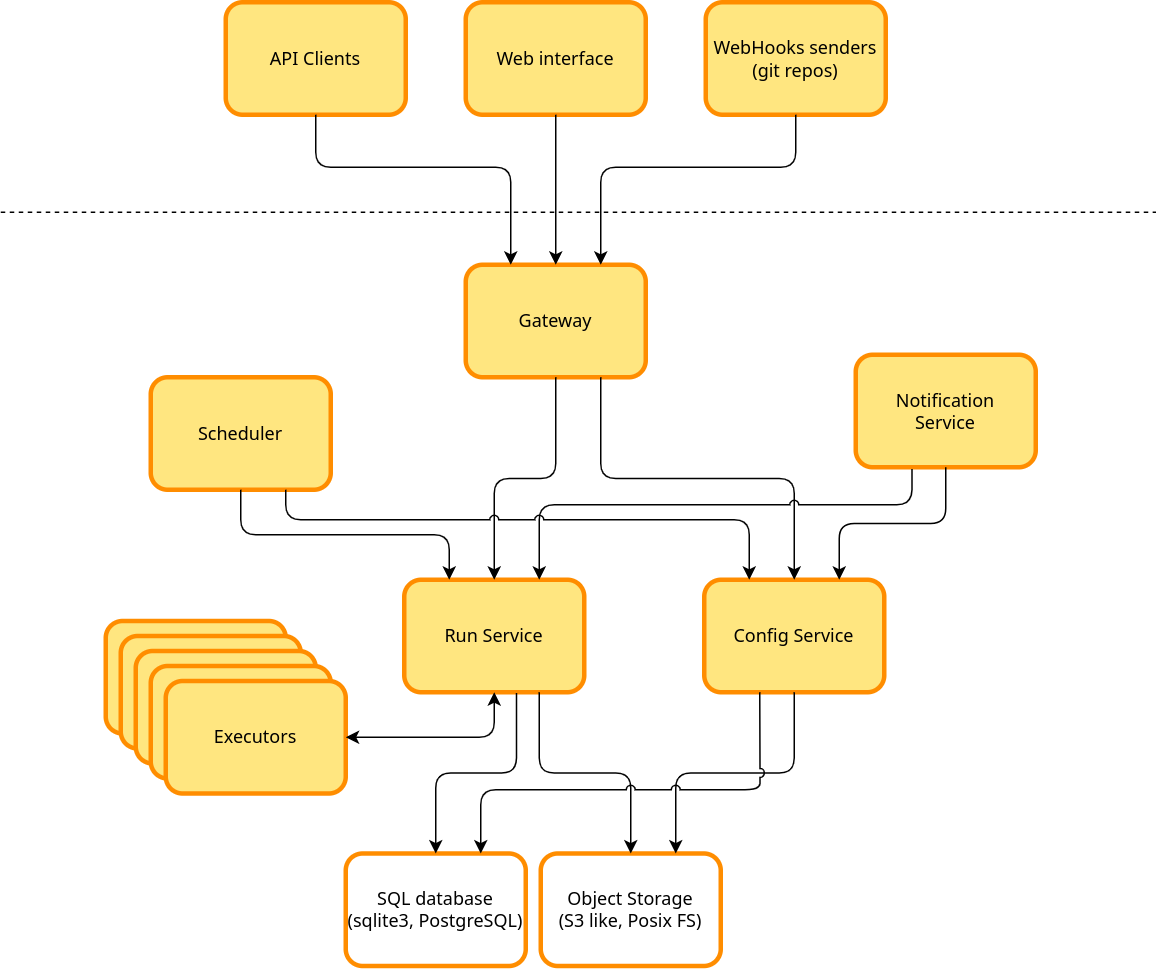Architecture
Agola is composed of multiple (micro)services
Every service does one part of the big job and permits to create additional extensions by creating additional services that interacts with them

Services
Internal services
The Run, Config, Scheduler services are internal services and their API are used by the other service but must not be exposed to external users since they are open (not authorization handling)
User facing services
The Agola gateway is the user facing endpoint. They interact with the internal services and manages authorization (and also receive webhook request from remote sources)
Gateway
The API entry point for external client and webhooks.
- Handles authentication and authorization
- Entities configuration (create/manage organizatios, projects etc...)
- Run management:
- restart a run
- authorize a run or a run task
Run Service
The Run service manages and execute runs. A run is a group of tasks. Each task can depend on another task to achieve fan-in and fan-out
See Run Service for a detailed description.
Config
Stores the configurations of the various agola entities types:
- Organizations
- Users
- Project
- Project Group
Scheduler
The Scheduler will monitor queued/running/finished runs and start queued runs applying the specific project/organization limits and configuration.
Some Examples:
- Only one running run per project (useful for deployment runs where concurrent deployments may create issues):
- Start next queued runs only when there're no running runs
- Only one running run per project and cancel/stop current ones:
- When a new run for a project/branch is queued, STOP all running runs, and CANCEL previously queued RUNS.
- Have at max N running runs per project/branch
Notification service
The notification service listens for run events from the run service and publishes commit status updated to the remote sources